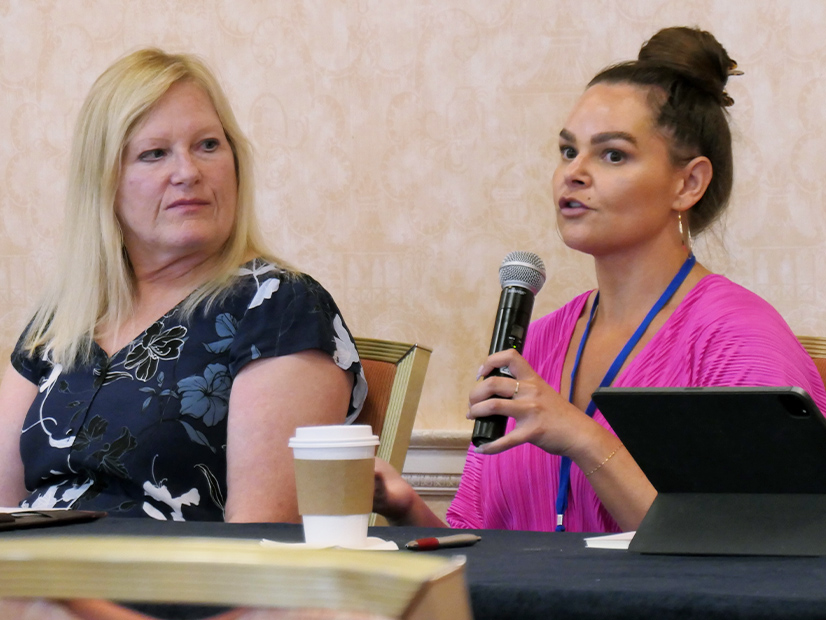GRAND RAPIDS, Mich. — This year’s Mid-America Regulatory Conference took notice of FERC’s recent set of interconnection rule changes.
Experts on an interconnection panel Aug. 7 were hopeful that the commission’s Order 2023 — meant to alleviate queue backlogs, give developers certainty and prevent discrimination against new technologies — will fix some of the problems plaguing queues (RM22-14). (See FERC Updates Interconnection Queue Process with Order 2023.)
“We know the symptom of the interconnection problem, but what’s the cure?” Iowa Utilities Board Commissioner and panel moderator Joshua Byrnes asked panelists in a room packed with attendees.
AEP Vice President of Transmission Planning Kamran Ali said he thought Order 2023 will result in “cleaner” interconnection queues, though the jury is still out on whether it will encourage more capacity to connect.
“We’re capacity-short in a lot of areas because load is pushing resource requirements up,” Ali said.
Clean Grid Alliance Executive Director Beth Soholt said FERC’s order is helpful to spur transmission providers to bring new generating capacity online and not simply be motivated to preserve the existing resources on the system.
“We’re talking about a lot of turnover. We have a lot of retirements; we must get a lot of megawatts through in a short amount of time. We have to look at both sides of the ledger. What can interconnection customers do, but what can MISO and transmission owners do? It’s not working well today,” Soholt said.
Enel North America’s Gina Mace said she was glad to see FERC placed emphasis on the commercial readiness of generation projects in Order 2023.
Mace also said queues “could see a lot of progress” if long-term transmission planning is co-optimized with interconnection planning. She said today’s transmission system is ill-suited to how scattered generation is becoming.
Soholt said in a perfect world, there would be that same comprehensive planning in MISO, in addition to many more engineers to study two cycles of entrants per year.
Soholt said transmission owners should communicate with interconnection customers earlier to signal whether proposed points of interconnection are feasible. She also said MISO is on the wrong track to propose to cap the number of megawatts annually that it will study. MISO has proposed to restrict queue submissions to a 60%-of-peak-annual-load (about 73 GW) annually, triple its entry fees and establish more rigorous land obligations and escalating penalty charges. (See MISO Aims for Manageable Interconnection Queue.)
“If you cap the megawatts, you’re going to have people lining up five years ahead just to enter the queue,” Soholt said, asking if that scenario is conducive to the rapid plans for a clean energy transition.
“The demand is there. We’ve got to get them through the process,” Soholt said.
Mace said MISO needs more realistic study assumptions, a clearer notifications process if withdrawing projects stand to affect other projects and a plan to somehow reduce the interdependency among projects in its studies.
Ali said interconnection customers want some certainty before they commit to securing land. However, he said the quicksilver nature of earlier queued projects and the potential for re-studies mean interconnection queues probably will continue to be synonymous with uncertainty.
MISO has said the majority of the requirements “appear to generally align” with existing MISO process. It said it likely must tweak timelines, requirements and nomenclature in its interconnection process to match FERC’s vision.




